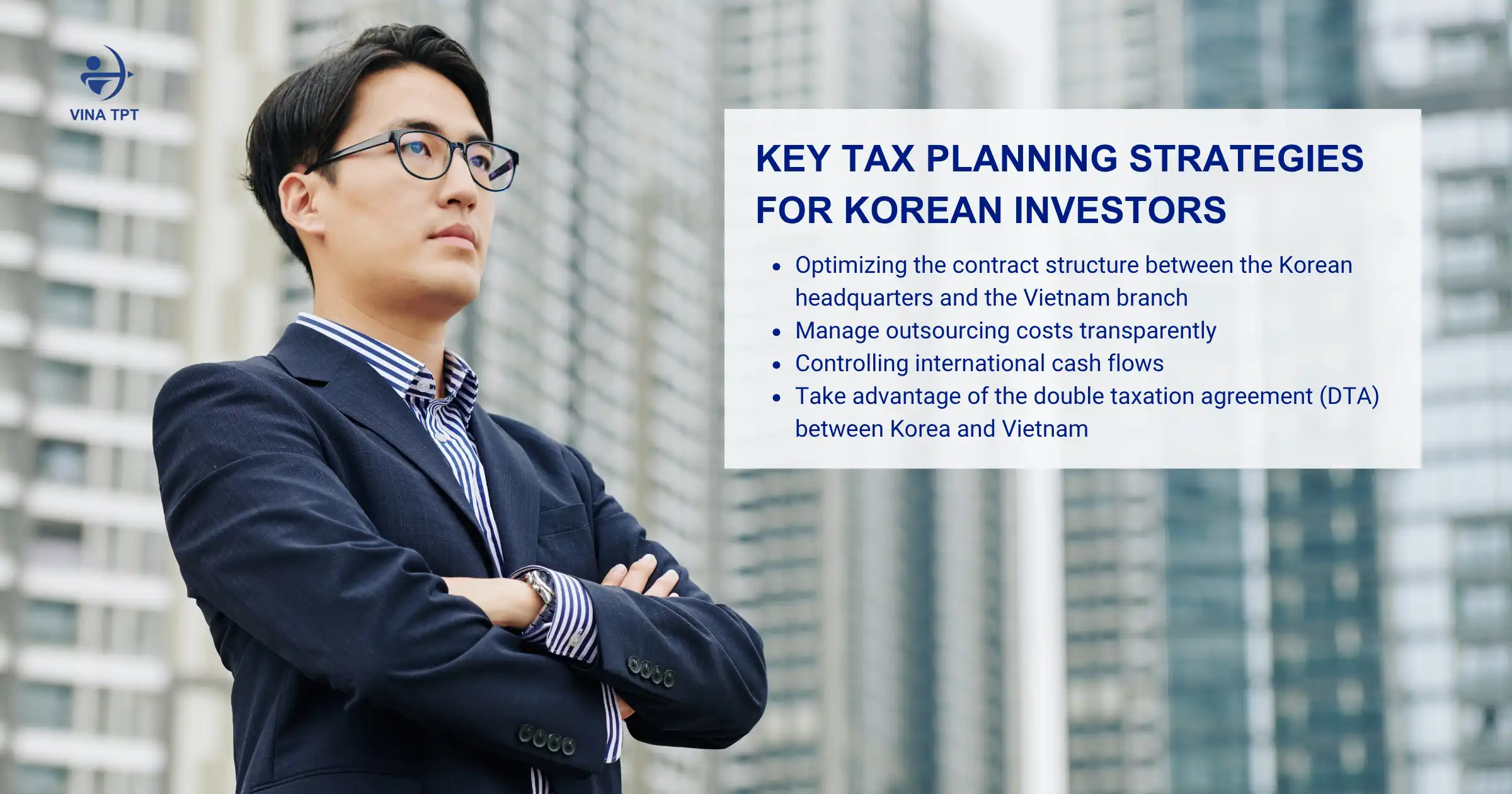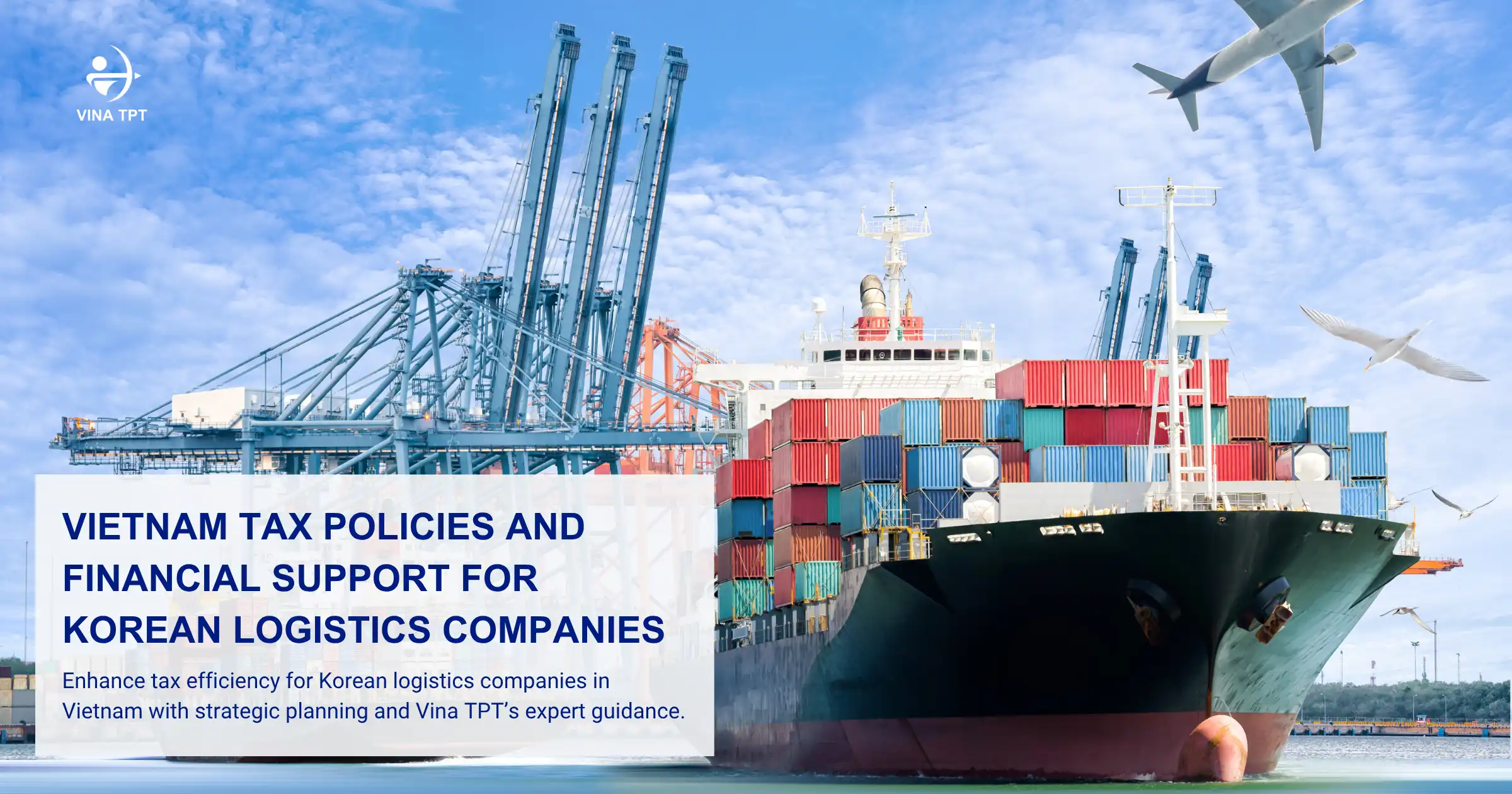1. Expanding Logistics Networks, Expanding Tax Challenges
In recent years, a growing number of Korean logistics companies have opened branches, transit warehouses or distribution centers in Vietnam. This is a strategic move, as Vietnam is becoming the new logistics hub of Southeast Asia, with its favorable location and rapidly developing port and airport system.
However, along with the opportunity to expand its operating network comes a series of new challenges in tax planning. When a business operates in both countries, cash flow, contracts, and operating costs all need to be carefully calculated to comply with Vietnamese law while optimizing the overall profit of the group.
Lack of appropriate tax planning can lead to double taxation, loss of investment incentives or tax arrears due to incorrect declarations. Therefore, tax planning is not just the job of the accounting department, but a core financial strategy in cross-border operations.
2. Overview of Vietnam’s Tax Policies for Logistics Companies
Vietnam’s tax system for the logistics industry is highly specific, reflecting the diversity of activities in this sector.
First, businesses must comply with corporate income tax (CIT) usually at 20%. However, if the business operates in an industrial park or an encouraged economic zone, it may enjoy a lower preferential tax rate.
Next is value-added tax (VAT) on transportation services. Depending on the type of service – domestic, international or transit, the applicable VAT rate may vary, and determining the correct rate is important to avoid audit risks.
Companies that have contracts to hire contractors or use services from abroad should pay attention to Foreign Contractor Tax, which is often applied to service fees, software or outsourcing from the Korean headquarters. In addition, import duties on transport vehicles or specialized equipment (container trucks, forklifts, refrigeration systems, etc.) are also significant costs that need to be managed in the overall tax plan.
Understanding these policies in detail is essential for Korean logistics companies to operate efficiently and compliantly in Vietnam’s regulatory landscape.
3. Available Tax Incentives and Financial Support
In addition to tax obligations, Vietnam also offers many tax incentives and financial support to encourage foreign investment.
Korean logistics companies can enjoy corporate income tax exemptions or reductions when setting up facilities in industrial parks, high-tech parks, or border economic zones. For projects focusing on digital transformation, logistics process automation, or green investments (e.g., using electric vehicles, renewable energy), businesses can receive additional incentives on accelerated depreciation and tax exemptions for a certain period of time.
In addition, the Vietnamese government is implementing many financial support programs, including preferential credit packages for businesses applying smart technology in logistics operations, and a temporary VAT reduction policy to stimulate consumption and circulation of goods.
Taking advantage of tax incentives not only helps businesses reduce short-term costs but also enhances long-term competitiveness in the regional market.
4. Key Tax Planning Strategies for Korean Investors
An effective tax planning strategy is not only based on correct declarations, but also needs to be linked to actual business operations. For Korean investors, this involves many layers of strategy.
First is optimizing the contract structure between the Korean headquarters and the Vietnam branch. Clearly defining the nature of the transaction, for example, a service contract, asset leasing or goods distribution, helps avoid the risk of being taxed in the wrong group.
Second, businesses need to manage outsourcing costs transparently. Outsourcing payments from the parent company or international suppliers must have records proving the value of the service, to avoid being adjusted under anti-transfer pricing regulations.
Third is controlling international cash flows, ensuring that payment flows between Korea and Vietnam are made at the right time, in the right currency, and with a clear legal basis.
Finally, Korean companies should take advantage of the double taxation agreement (DTA) between Korea and Vietnam. This agreement helps businesses avoid double taxation on the same income, while also providing a solid legal basis for cross-border operations.
These strategies are only effective when implemented under the guidance of tax advisory experts who understand both legal systems of Korea and Vietnam.

5. How Vina TPT Tax Service Ensures Compliance and Optimization
In that context, Vina TPT Tax Service has become a trusted partner for Korean logistics companies operating in Vietnam. With in-depth expertise in Vietnam tax service for Korean logistics companies, Vina TPT not only helps businesses comply but also supports the optimization of tax strategies.
Vina TPT’s team of experts has practical experience in the logistics industry – from maritime transport, warehousing, to supply chain services. They not only advise on documents but also directly support businesses in the process of preparing reports, declaring taxes, working with tax authorities and conducting periodic reviews.
Vina TPT’s special feature is the “advisory and execution” model – meaning both strategic consulting and practical implementation. Thanks to that, Korean companies do not need to worry about the lack of personnel who understand Vietnamese regulations, while still ensuring the tax system operates accurately and effectively.
With the philosophy of “Transparency – Accuracy – Optimization”, Vina TPT helps foreign enterprises turn tax compliance into a sustainable competitive advantage.
Contact Vina TPT Tax Service now for free consultation on tax planning and tax incentives specifically for Korean logistics businesses in Vietnam – optimize costs, comply with the law and develop sustainably with leading experts.

